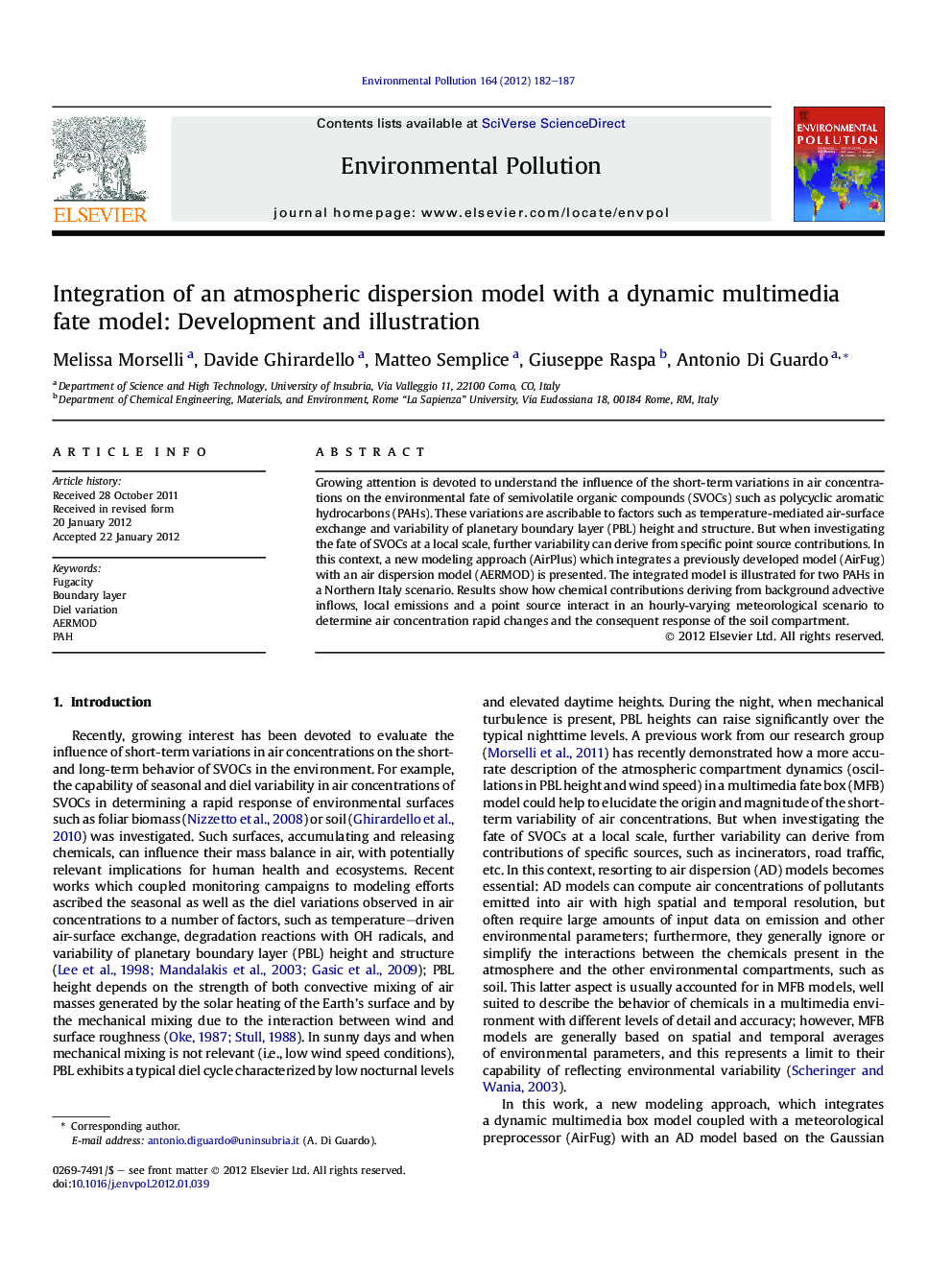| Article ID | Journal | Published Year | Pages | File Type |
|---|---|---|---|---|
| 4425075 | Environmental Pollution | 2012 | 6 Pages |
Growing attention is devoted to understand the influence of the short-term variations in air concentrations on the environmental fate of semivolatile organic compounds (SVOCs) such as polycyclic aromatic hydrocarbons (PAHs). These variations are ascribable to factors such as temperature-mediated air-surface exchange and variability of planetary boundary layer (PBL) height and structure. But when investigating the fate of SVOCs at a local scale, further variability can derive from specific point source contributions. In this context, a new modeling approach (AirPlus) which integrates a previously developed model (AirFug) with an air dispersion model (AERMOD) is presented. The integrated model is illustrated for two PAHs in a Northern Italy scenario. Results show how chemical contributions deriving from background advective inflows, local emissions and a point source interact in an hourly-varying meteorological scenario to determine air concentration rapid changes and the consequent response of the soil compartment.
► An integrated multimedia fate – air dispersion model was developed. ► It can be used to investigate the fate of specific sources at a local scale. ► Tool to evaluate the response of the soil compartment to such air loadings.
